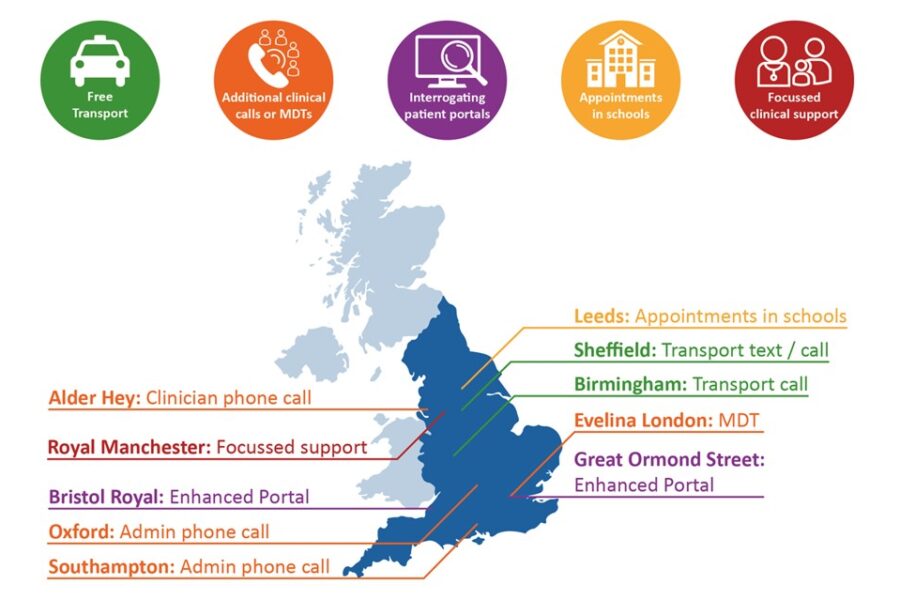
Reducing Missed Appointments with AI: Improving Efficiency and Access
In 2018/19, nearly eight million outpatient appointments were missed in England, costing the NHS approximately £1 billion. Over 15% of these missed appointments were for patients aged 19 and under, accounting for £150 million in wasted resources.
Missed appointments disrupt clinic schedules, delay care for other patients, and create significant inefficiencies. Families from socioeconomically disadvantaged backgrounds face greater challenges accessing healthcare, leading to delayed diagnoses and poorer outcomes. This cycle of unmet healthcare needs widens the gap in health equity, particularly for vulnerable children and young people.
The Solution: AI-Powered Predictive Tool
To combat this issue, the WNB AI tool was developed. Using advanced machine learning, the tool analyses key risk factors, including:
- Patient demographics.
- Appointment history.
- Social determinants of health.
By predicting which patients are likely to miss their appointments, the tool enables tailored interventions, such as:
- Transport support for families with logistical challenges.
- Personalised reminders to improve engagement.
- Flexible scheduling to accommodate family needs.
This proactive approach ensures at-risk patients receive the necessary support to attend appointments, reducing the number of missed opportunities for care.
The Impact: Measurable Results and Transformative Change
The WNB AI tool has delivered significant benefits for clinics and families:
- 78% prediction accuracy, allowing targeted interventions.
- A 25% reduction in Did Not Attend (DNA) rates within the Children’s Hospital Alliance, equivalent to 27,500 appointments and £3 million in cost savings over two years.
- Trusts reported an average 52% reduction in WNB rates among the most at-risk groups, preventing 4,000 WNBs within just two months.
- 17% of appointments were cancelled in advance, enabling Trusts to reallocate slots effectively.
- This resulted in 1,200 appointments being rebooked within the same period.
These improvements have significantly enhanced clinic utilisation and reduced duplication, ensuring more patients receive timely care. Families have also benefited from more family-centred approaches, reducing the financial and logistical burden of healthcare access.
“Each missed slot represents lost opportunities for care and longer waits for other children.”
Ophthalmologist at Alder Hey
Today, thanks to the innovative AI tool, clinics are seeing unprecedented reductions in Was Not Brought (WNB) rates. This transformation is revolutionising patient care and resource utilisation across paediatric healthcare.
Current Development: Expanding Adoption and Scaling Impact
Ongoing development focuses on scaling the WNB AI tool to additional Trusts, ensuring its commercial viability and accessibility. The tool is setting a new standard in patient care, driving efficiencies, improving health equity, and ensuring children and families receive the care they need when they need it.